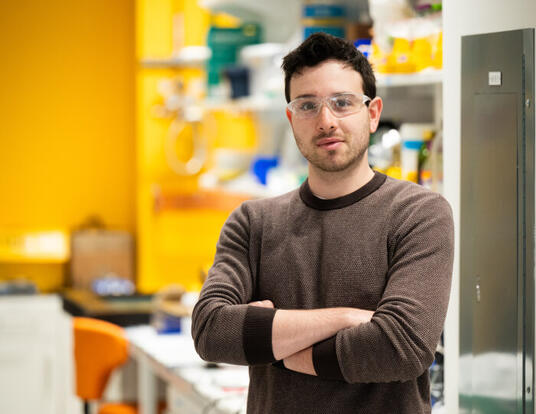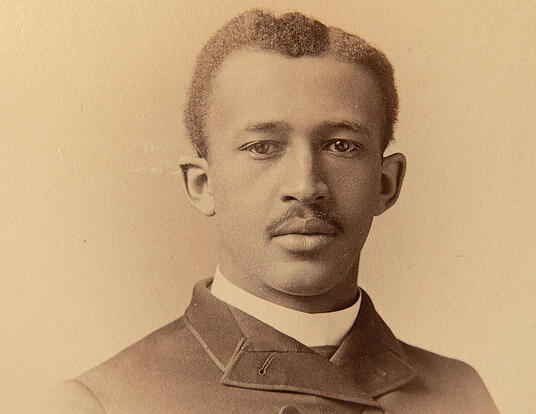Daniel Goleman: 2023 Centennial Medal Citation
Today, it is easy to recognize the value of being in touch with one’s emotions—and for that, we have Daniel Goleman to thank. Through award-winning journalism, bestselling books, public speaking engagements, and nonprofit leadership, Goleman has enshrined the concept of emotional intelligence in the classroom, in the boardroom, and in the public consciousness.
Originally from California, Goleman completed undergraduate studies at Amherst College and the University of California, Berkeley, and his PhD in 1974 in Harvard’s Department of Social Relations, a program that combined psychology, anthropology, and sociology. As a graduate student and postdoctoral fellow, he traveled to India and Sri Lanka to study ancient theories of the mind and meditation practices. He returned to Harvard as a visiting lecturer before beginning his career in science journalism at Psychology Today and then The New York Times, where from 1984 to 1996 he covered psychology, emotions, and the brain. Through this work, Goleman became the first mainstream journalist to bring the insights of scientific psychology to the general public.
“So much of modern science is consumed and digested by only scientists and can have little impact on helping to solve the challenging problems we are facing in today’s world,” observes his classmate Richard J. Davidson PhD ’76, founder and director of the Center for Healthy Minds at the University of Wisconsin-Madison and scientific advisory board member at the Harvard T.H. Chan School for Public Health’s Lee Kum Sheung Center for Health and Happiness. “Dan’s work as a science journalist helped usher in an era of bringing psychology and neuroscience to the fore and making some of its key insights understandable and actionable to the lay public. The world has benefited greatly from his brilliant work, and he inspired a generation of science journalists to follow in his footsteps.”
Goleman is best known for his work on emotional intelligence, a concept encompassing self-awareness, emotional self-management, empathy, and social skills—in other words, how well we navigate our own emotions and those of others. His 1995 book Emotional Intelligence popularized the concept and garnered widespread attention and acclaim, earning a spot on The New York Times bestseller list for a year and a half. The book is available in 40 languages around the world and was hailed by TIME magazine as one of the 25 most influential business management books. Subsequent works, including Goleman’s 1998 Harvard Business Review article “What Makes a Leader?”, which became the Review’s most-requested reprint and was selected as one of its ten “must-read” articles, brought the concept of emotional intelligence to the business world. Other books, including A Force for Good in 2015, returned to the roots of his doctoral research, incorporating insights from Asian religious traditions and his conversations and longstanding friendship with the Dalai Lama.
In addition to his research and writing, Goleman has helped advance the social impact of his work through nonprofit organizations. In 1993, he co-founded the Collaborative for Academic, Social, and Emotional Learning, or CASEL, which has helped bring the principles of social and emotional learning into thousands of schools worldwide. And in 1996, he co-founded the Consortium for Research on Emotional Intelligence in Organizations, dedicated to advancing the understanding and practice of social and emotional intelligence in the workplace.
“Dan is a scholar of synthesis, integrating research from many fields into coherent and relevant concepts for our lives and a better future,” says Richard Boyatzis AM ’70, PhD ’73, Distinguished University Professor in the Weatherhead School of Management at Case Western Reserve University, who has known Goleman since their graduate school days. They have worked together closely ever since, including on the 2002 book Primal Leadership: Learning to Lead with Emotional Intelligence, a national bestseller. “Dan’s writings on emotional intelligence, compassion, meditation, and environmental themes have become landmark works, and his curiosity and keen insights are amplified by his charming smile and wit,” Boyatzis adds. “He is a joy to work with and discover with, and he inspires others.”
One of the scholars that Goleman interviewed in his early days as a journalist was Teresa Amabile, Baker Foundation Professor at Harvard Business School; they subsequently collaborated on work related to creativity and the social-environmental factors that impact motivation. “Dan’s intellect is both brilliant and voracious,” Amabile says. “He is immensely curious about, and passionately driven to understand, everything about human thoughts, emotions, and behaviors. He does so much more than translate psychological research for a wide audience; his insightful, beautiful prose brings science to life and, in so doing, improves life for all of us.”
Daniel Goleman, for your unrivaled excellence in communicating science and psychology to broad audiences, and for your foundational work on the concept of emotional intelligence, which has had a profound influence on how we understand personal success in the classroom, the workplace, and beyond, we are proud to award you the 2023 Centennial Medal.
Get the Latest Updates
Join Our Newsletter
Subscribe to Colloquy Podcast
Simplecast





